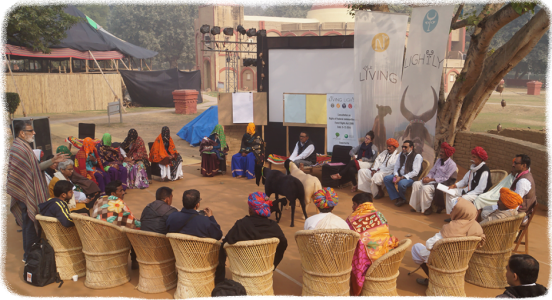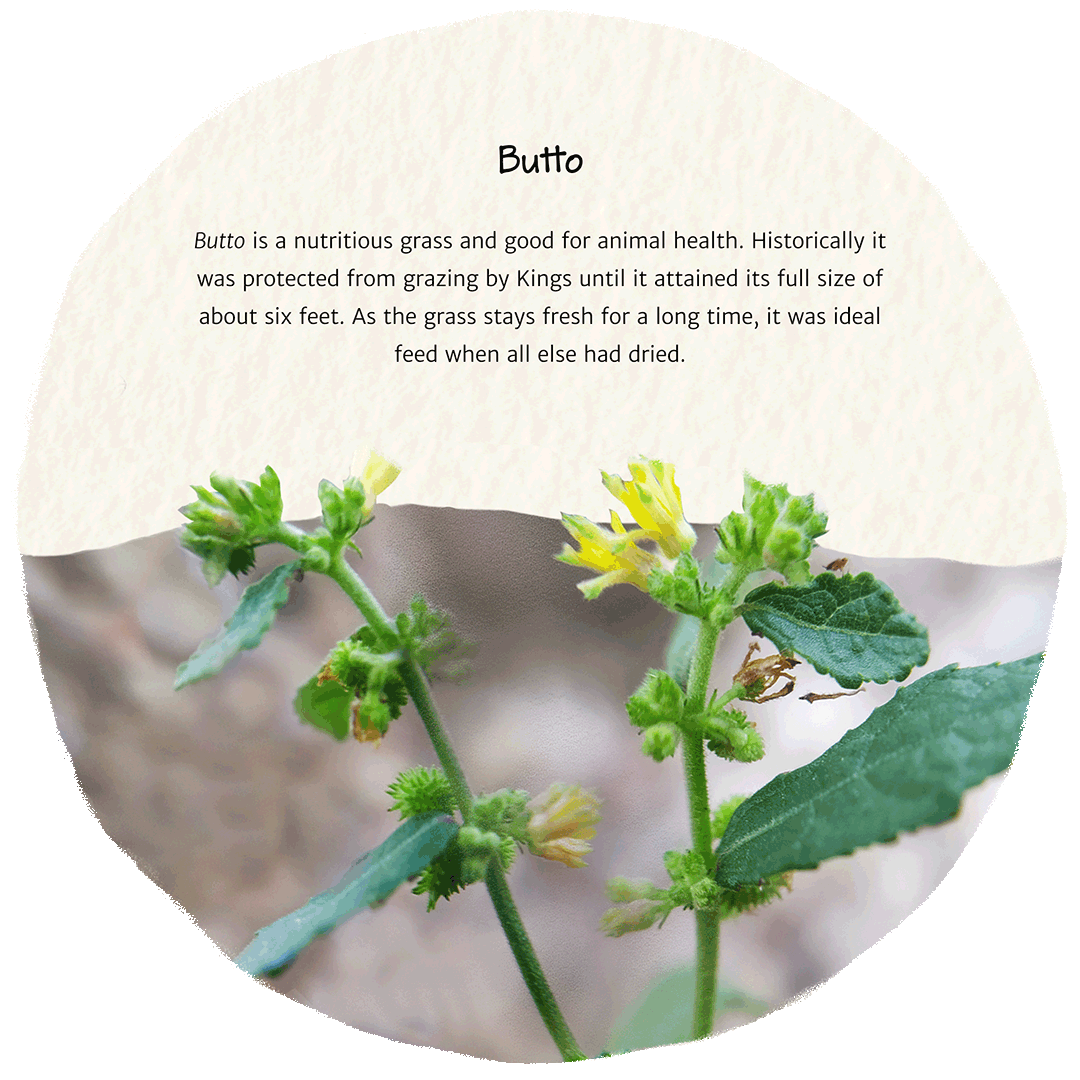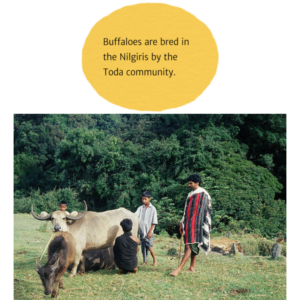Conferences & Consultations
Pastoral Goshtis
In Pastoral Goshtis, pastoralists hold space and share stages as they discuss their future. Throughout the exhibitions, pastoralists discuss a range of issues impacting their livelihood, mobility and lifestyles.
When pastoralists gathered daily in IGNCA’s amphitheatre, during the 18 day long Delhi exhibition, it was perhaps the very first time in recent history that fifteen pastoralist communities from ten States of India – from Arunachal Pradesh to Gujarat, Kashmir to Telangana – met for seven long days to exchange their practices, concerns, and stories.


Herders speak a FRA workshop/Goshti at IGNCA, Delhi
Read More >
Read Less <
In Delhi, they listened to Neelkanthmama, a Kuruba leader, explain the processes they undertook to ensure that the Karnataka government created a compensatory policy for the death of small ruminants, the only State in India to do so. Kachchh pastoralists explained the genetic virtues of the Banni buffalo breed that they have developed, and how the National Bureau Of Animal Genetic Resources (NBAGR) recognised their breed, bringing prestige and financial benefits to the community.

Neelkanth Mama, a herder from Belgaum speaks at a Goshti




Herders and practioners deliberate on a sunny December morning at IGNCA, Delhi 2016.
The opportunities they wanted to collectively
explore were the huge amounts of sheep wool
they now sheared and lay waste due to the lack
of markets for local sheep wool.

They lamented that the wool corporations had
not invested in the huge diversity of Indian
wool, allowing international sheep wool varieties
like Merino to take over the Indian wool markets.

Herders speak at Goshtis in Ahmedabad

Dr. Sadana, a noted animal scientist, speaks at a Goshti














































